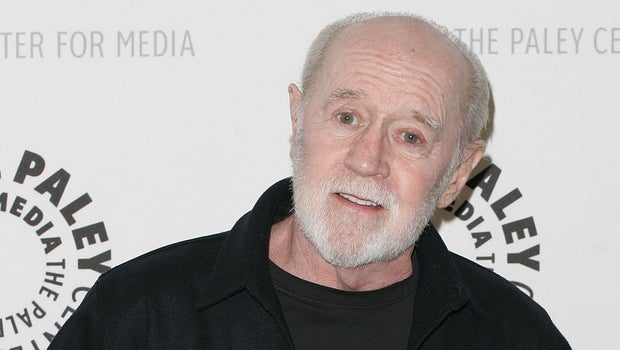Los Angeles — The estate of George Carlin has filed a lawsuit against the media company behind a fake hourlong comedy special that purportedly uses artificial intelligence to recreate the late standup comic’s style and material.
The lawsuit filed in federal court in Los Angeles on Thursday asks that a judge order the podcast outlet, Dudesy, to immediately take down the audio special, “George Carlin: I’m Glad I’m Dead,” in which a synthesis of Carlin, who died in 2008, delivers commentary on current events.
Neilson Barnard / Getty Images
Carlin’s daughter, Kelly Carlin, said in a statement that the work is “a poorly-executed facsimile cobbled together by unscrupulous individuals to capitalize on the extraordinary goodwill my father established with his adoring fanbase.”
The Carlin estate and its executor, Jerold Hamza, are named as plaintiffs in the suit, which alleges violations of Carlin’s right of publicity and copyright. The named defendants are Dudesy and podcast hosts Will Sasso and Chad Kultgen.
“None of the Defendants had permission to use Carlin’s likeness for the AI-generated ‘George Carlin Special,’ nor did they have a license to use any of the late comedian’s copyrighted materials,” the lawsuit says.
The defendants haven’t filed a response to the lawsuit and it wasn’t clear whether they’ve retained an attorney. They couldn’t immediately be reached for comment.
At the beginning of the special posted on YouTube on Jan. 9, a voiceover identifying itself as the AI engine used by Dudesy says it listened to the comic’s 50 years of material and “did my best to imitate his voice, cadence and attitude as well as the subject matter I think would have interested him today.”
The plaintiffs say if that was in fact how it was created – and some listeners have doubted its stated origins – it means Carlin’s copyright was violated.
The company, as it often does on similar projects, also released a podcast episode with Sasso and Kultgen introducing and commenting on the mock Carlin.
“What we just listened to, was that passable,” Kultgen says in a section of the episode cited in the lawsuit.
“Yeah, that sounded exactly like George Carlin,” Sasso responds.
In posts on X, the former Twitter, on Jan. 10, Carlin’s daughter, Kelly Carlin, said, “My dad spent a lifetime perfecting his craft from his very human life, brain and imagination. No machine will ever replace his genius. These AI generated products are clever attempts at trying to recreate a mind that will never exist again. Let’s let the artist’s work speak for itself. Humans are so afraid of the void that we can’t let what has fallen into it stay there. Here’s an idea, how about we give some actual living human comedians a listen to? But if you want to listen to the genuine George Carlin, he has 14 specials that you can find anywhere.”
The lawsuit is among the first in what is likely to be an increasing number of major legal moves made to fight the regenerated use of celebrity images and likenesses.
The AI issue was a major sticking point in the resolution of last year’s Hollywood writers and actors strikes.
Josh Schiller, an attorney for the plaintiffs, said in a statement that the “case is not just about AI, it’s about the humans that use AI to violate the law, infringe on intellectual property rights, and flout common decency.”
